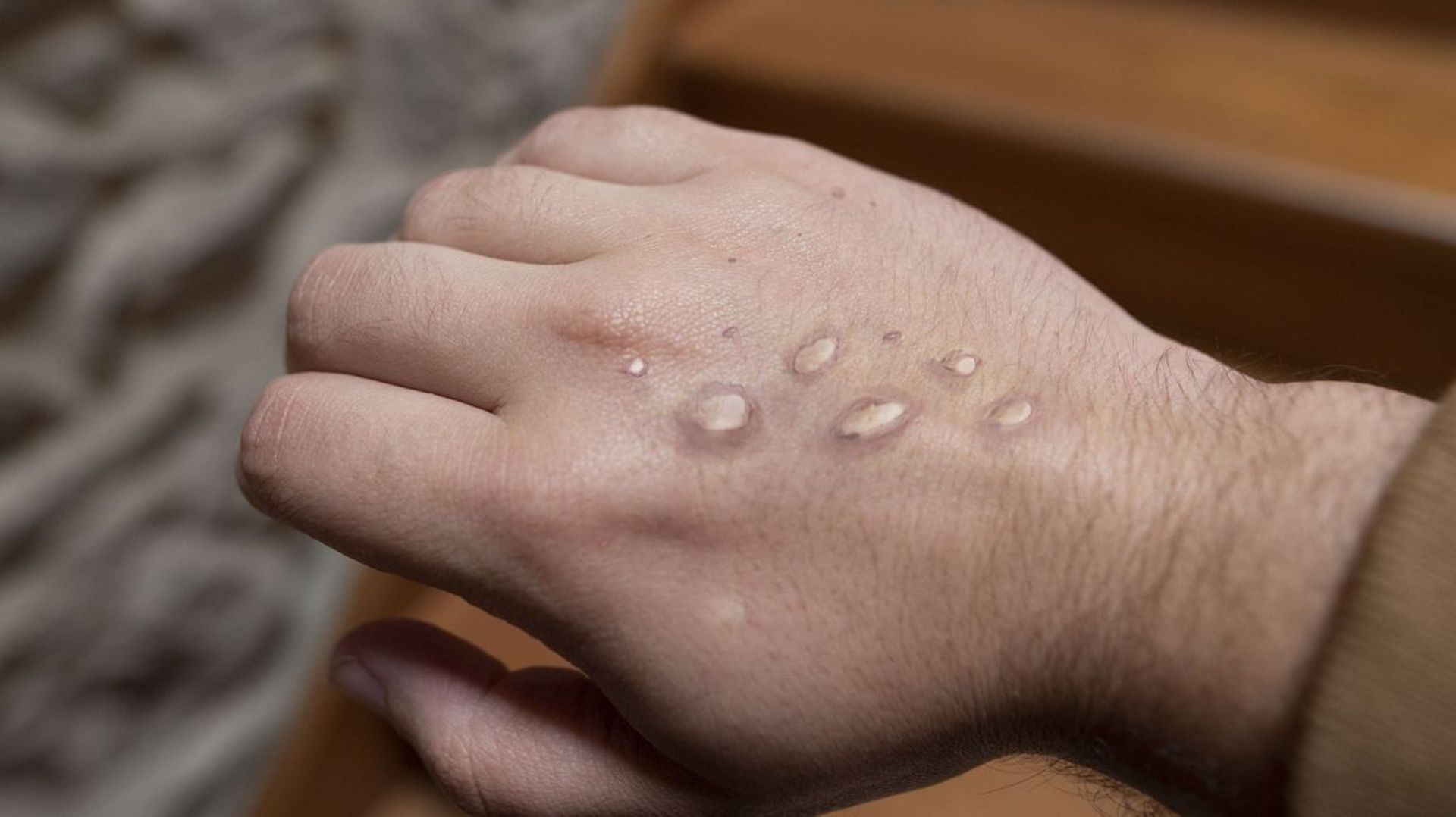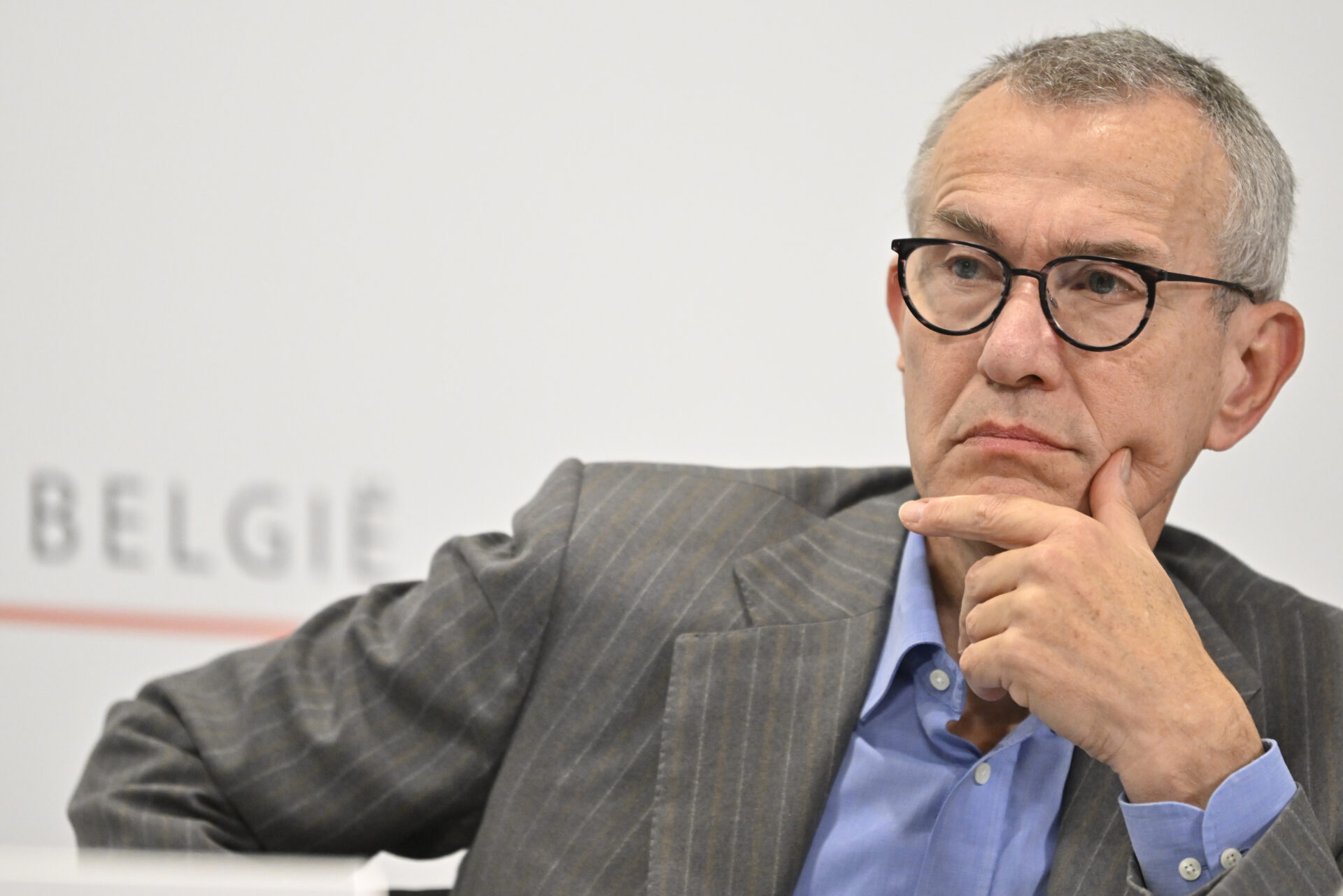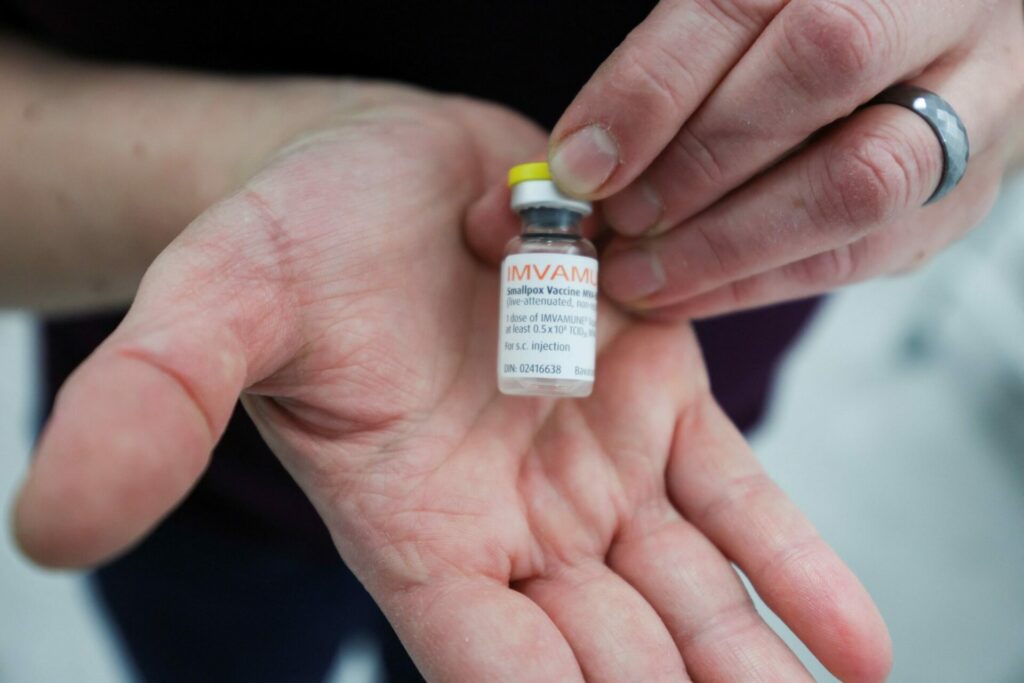While the mpox (formerly monkeypox) epidemic in Central and East Africa has officially been declared an "international public health emergency," the World Health Organisation (WHO) is not considering the disease "the new Covid-19."
The ongoing mpox outbreak in several African countries (with one confirmed case reported in Sweden, linked to travel to East-Central Africa) is a reminder that a public health threat in one part of the world can impact regions well beyond, said Hans Kluge, the WHO's Regional Director in Europe, on Tuesday.
"Mpox is not the new Covid-19. Both when it comes to the clade 1 variant at the root of the current epidemic in Central and East Africa and clade 2, which caused the 2022 epidemic," Kluge said at a press conference on Tuesday.
While he admitted that we still need to learn more about the new mpox variant, he also said that the world is already well informed about the infectious viral disease and that "we know how to fight mpox."
Physical contact
The disease is usually mild – causing skin rashes and flu-like symptoms – and heals within a few weeks. The disease is transmitted mainly by close physical contact, such as sexual or skin-to-skin contact, with an infected person. The risk of severe symptoms is higher in people with weakened immune systems.
Those with the highest risk of contracting mpox are people who travel frequently to affected areas and have intimate relationships with new/multiple partners or who have close contact with an infected person (such as sharing the bed).
Following outbreaks of mpox in the Democratic Republic of the Congo (DRC) and several neighbouring countries, the WHO declared an international medical emergency last week. The organisation recognises the risk that mpox could again spread internationally after the 2022 outbreaks and pose a health risk to several countries.
The new and more contagious clade 1b variant first surfaced in the DRC and has also been identified in Burundi, Kenya, Rwanda, Uganda and Sweden.

Credit: Belga
The WHO said that the African continent needs help to fight the mpox outbreak. "Europe must show solidarity. Solidarity with people and communities affected," Kluge said. "We can and must tackle mpox together. Do we choose systems to control and eradicate mpox globally, or do we start a new round of panic followed by neglect?"
In the meantime, the DRC's Health Minister Samuel-Roger Kamba announced a $49 million response plan in the fight against mpox on Tuesday. The money should serve to raise awareness, send out teams and treat patients, but does not include the cost of vaccines.
Since the start of the year, the DRC has recorded more than 16,700 cases of mpox – at least 517 of which have resulted in death. Infections have been detected in all provinces. The country "needs 3.5 million doses of vaccine," Kamba said.
Belgium plans to send 215,000 doses, while Japan is expected to provide three million. The United States also plans to contribute to the vaccination campaign. The DRC hopes to receive deliveries next week.
Risk remains low
Given the potential risk of the virus spreading to Europe and following the recommendations of Belgium's Risk Assessment Group (RAG), the country's Risk Management Group (RMG) will strengthen its surveillance.
"The risk of infection for the general population in Belgium is and remains very low," the RAG said in a press release. "However, for travellers to certain African countries, the risk of infection in case of close physical contact with someone from the affected communities is high."
A major vaccination campaign is therefore not necessary in Belgium and there is no need to worry about the new variant of the virus, said outgoing Federal Health Minister Frank Vandenbroucke (Vooruit). There is no evidence to suggest that the current vaccine would not work against the new variant.

Deputy Prime Minister and Minister of Health and Social Affairs Frank Vandenbroucke (Vooruit). Credit: Belga / Eric Lalmand
"We have asked the experts of the Superior Health Council to assess whether we might still need to provide a limited, targeted vaccination campaign, as we did during the virus outbreak two years ago. But for now, this is not needed," he said. "No infection has emerged in our country at the moment, but of course we have to be vigilant. Should a new outbreak occur, we have sufficient vaccines in stock."
Specific advice for those travelling to the affected countries will be formulated in the coming days and published on the Foreign Affairs website.
What to do in case of symptoms?
If you have symptoms (rash and flu-like symptoms) or think you have been in contact with an infected person, immediately isolate yourself at home and contact your GP by phone or online.
Healthcare providers are encouraged to remain vigilant and continue to apply standard precautions when treating suspected or confirmed mpox patients. Healthcare providers are obliged to report suspected or confirmed cases to the regional health authorities.

